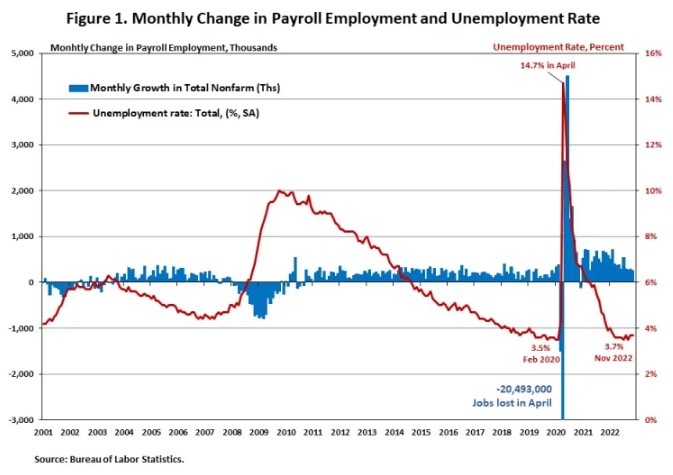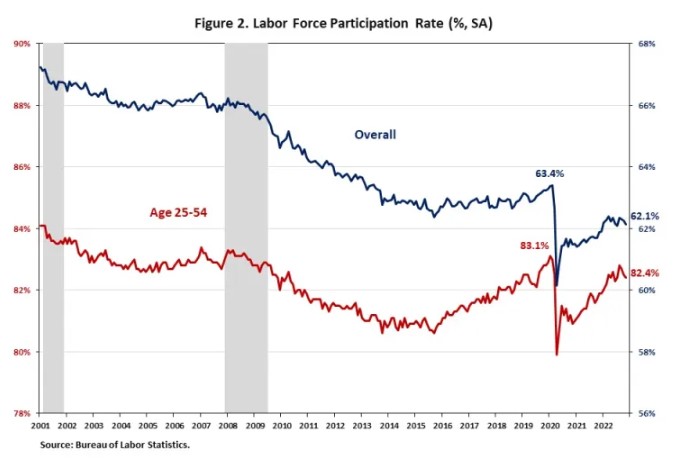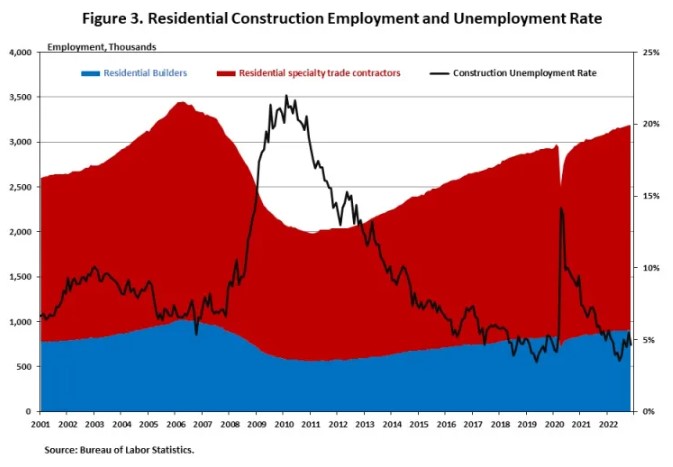Chart: Residential Construction Employment Continues to Rise
Originally Published by: NAHB — December 2, 2022
SBCA appreciates your input; please email us if you have any comments or corrections to this article.
In November, job growth slowed slightly from the previous month but still showed strength despite tight monetary policy. The unemployment rate was unchanged at 3.7% in November as the number of persons in the labor force decreased for the third straight month.
Total nonfarm payroll employment increased by 263,000 in November, following a gain of 284,000 in October, as reported in the Employment Situation Summary. It marks the smallest monthly job gain since April 2021. The estimate for September was revised down by 46,000 from +315,000 to +269,000, while the October increase was revised up by 23,000, from +261,000 to +284,000. In the first eleven months of 2022, about 4.3 million jobs were created, and monthly employment growth averaged 392,000 per month, compared with a 562,000 monthly average gain in 2021.

The unemployment rate remained unchanged at 3.7% in November. The number of unemployed persons was essentially unchanged at 6.0 million, while the number of employed persons decreased by 138,000.
Meanwhile, the labor force participation rate, the proportion of the population either looking for a job or already with a job, edged down 0.1 percentage point to 62.1% in November, reflecting the increase in the number of persons not in the labor force (+359,000) and the decrease in the number of persons in the labor force (-186,000). Moreover, the labor force participation rate for people who aged between 25 and 54 decreased to 82.4%. Both of these two rates are still below their pre-pandemic levels in the beginning of 2020, and are not fully recovered from the COVID-19 pandemic.

For industry sectors, leisure and hospitality (+88,000), health care (+45,000), and government (+42,000) had notable job gains in November, while employment in retail trade (-30,000) and in transportation and warehousing (-15,000) declined.
Employment in the overall construction sector rose by 20,000 in November, following a 9,000 gain in October. Residential construction gained 3,900 jobs, while non-residential construction employment gained 16,300 jobs in November. Residential construction employment currently exceeds its level in February 2020, while 87% of non-residential construction jobs lost in March and April have now been recovered.
Residential construction employment now stands at 3.2 million in November, broken down as 903,000 builders and 2.3 million residential specialty trade contractors. The 6-month moving average of job gains for residential construction was 4,617 a month. Over the last 12 months, home builders and remodelers added 105,000 jobs on a net basis. Since the low point following the Great Recession, residential construction has gained 1,204,500 positions.
In November, the unemployment rate for construction workers declined by 0.8 percentage points to 4.6% on a seasonally adjusted basis. The unemployment rate for construction workers has been trending lower, after reaching 14.2% in April 2020, due to the housing demand impact of the COVID-19 pandemic.

